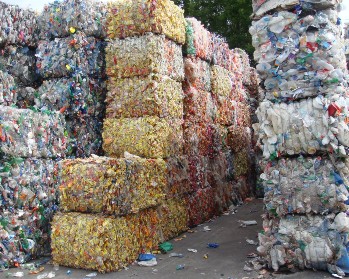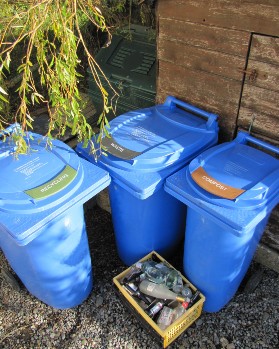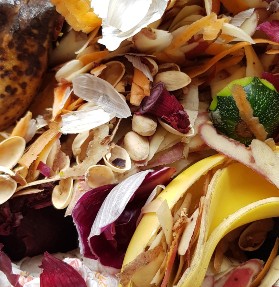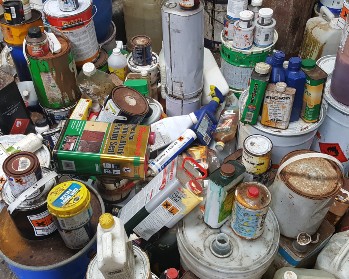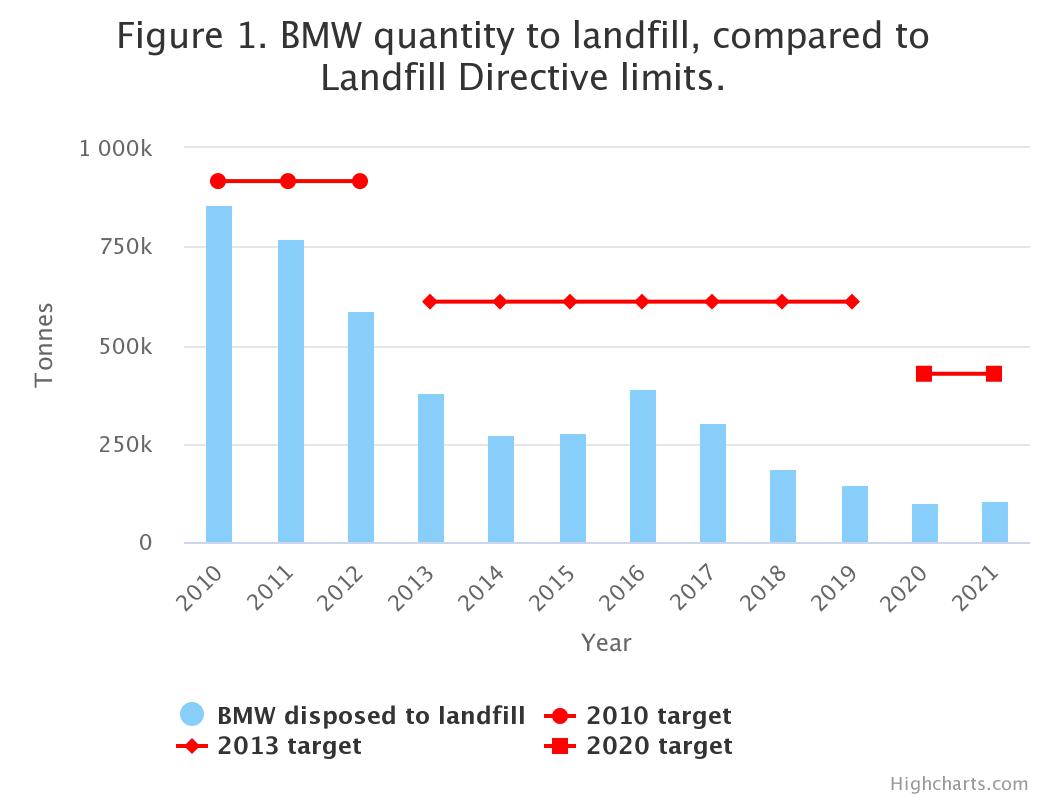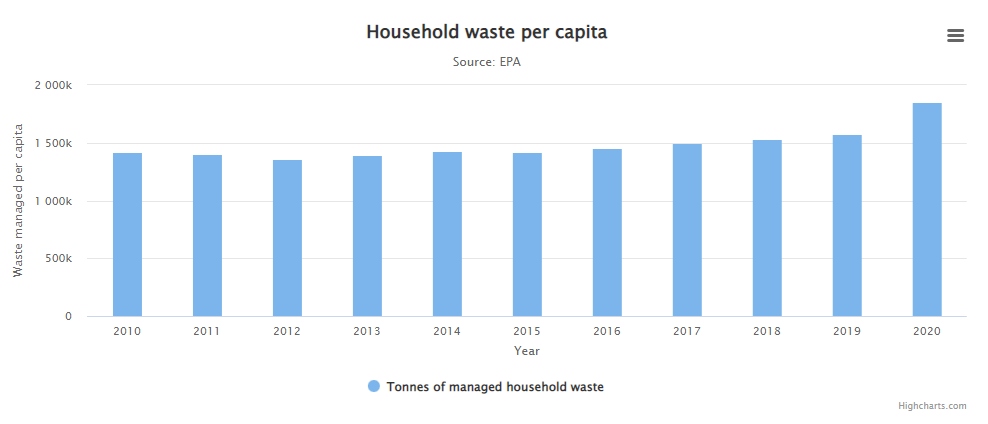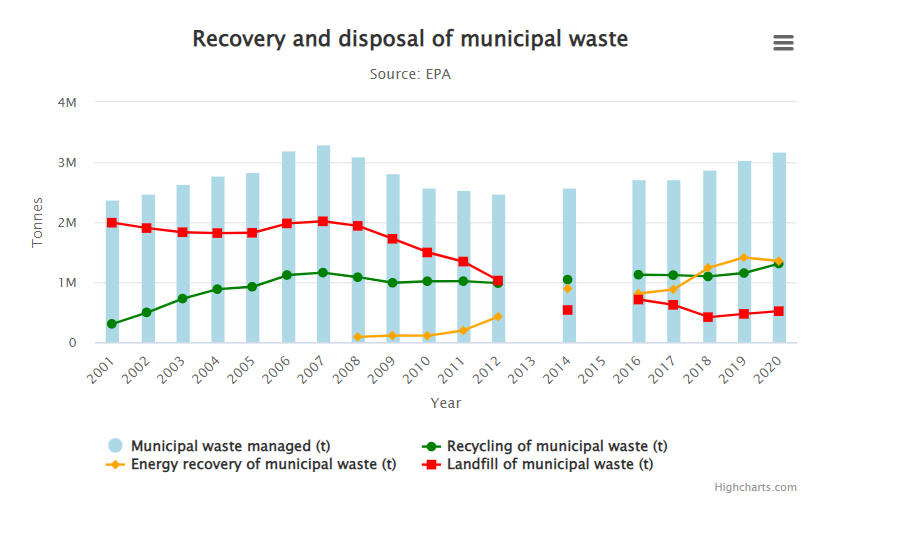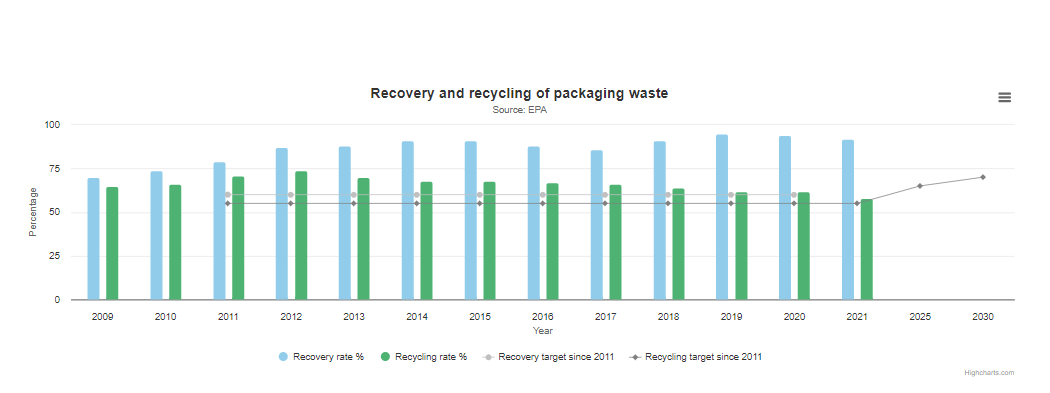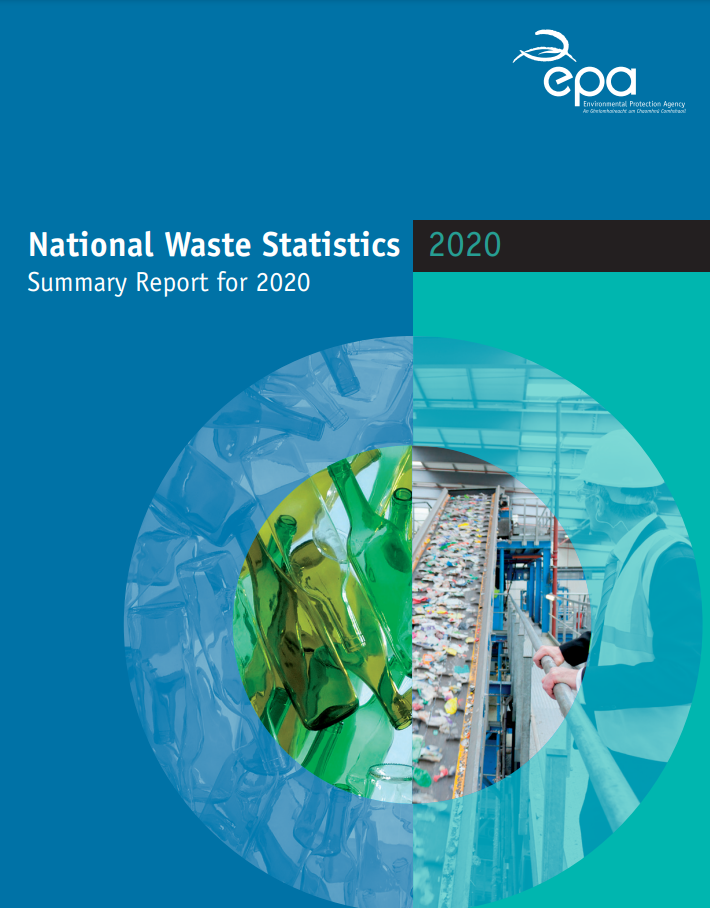- Ireland generated approximately 16.2 million (m) tonnes of waste in 2020, corresponding to 3.25 tonnes per person, up from 12.7 million tonnes (2.77 tonnes per person) in 2012.
- Construction and demolition waste is the largest waste stream in the state, amounting to over 9 million tonnes in 2021.
- The amount of municipal waste recycled has increased by 11% since 2016, but total waste generated also increased by 11%, so the recycling rate has stagnated.
- Household waste has also grown by 27%, equivalent to over 400,000 tonnes, in the last five years.
- For the fifth year in a row, the total packaging waste generated in Ireland exceeds 1m tonnes.
- Ireland missed the waste electrical and electronic equipment (WEEE) collection target in 2021 and is in danger of missing future EU waste targets for municipal and plastic packaging waste recycling.
- Ireland is still heavily reliant on export markets, particularly for the treatment of municipal waste, hazardous waste, packaging waste, WEEE and biowastes.
- Taking the following key actions would fundamentally move Ireland’s performance in managing waste in a predominantly circular approach:
There is an urgent need to increase the municipal recycling rate. This is not on track to meet the 2025 EU target.
Targeted financial, regulatory and awareness measures are urgently needed to drive a step change improvement in plastic packaging recycling to meet the 2025 EU target.
Address Ireland’s waste infrastructure deficits to develop Ireland’s circular economy opportunities and reduce the emissions associated with transporting waste over long distances.
